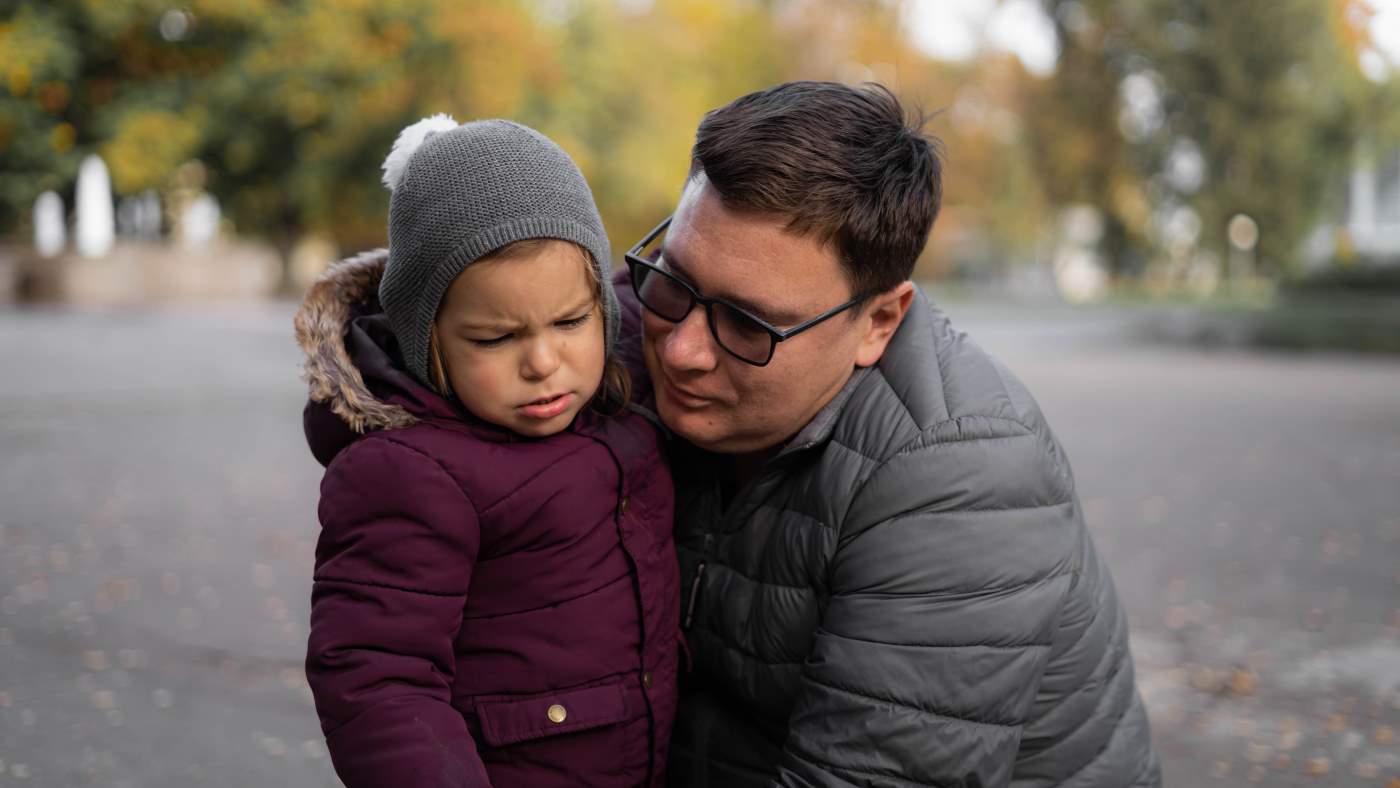Bodies, brains and emotions – why your toddler can't calm down without your help

We know toddlers can get overwhelmed at times, we all can when you think about it, but your toddler probably finds it more difficult than you do to calm again – and this could be explained by their brain development.
What are executive functions and why are they important in emotions?
As we follow your toddler’s journey, you will notice we talk about executive functions quite a lot!
These functions are important for us all – they help us to regulate our emotions and attention, and plan and carry out activities.
Like most things we do, these functions use multiple areas of the brain, but one area of the brain that is particularly important for executive functions is the ‘prefrontal cortex’; this area is not fully developed until early adulthood – interesting when thinking about teenagers too!
Where is the prefrontal cortex?[1]
If you put the palm of your hand on your forehead with your fingers spread out and reaching into your hair, your hand will be over the frontal lobe of your brain. The front part of this area is the prefrontal cortex.
Emotions, bodies and brains
We often think of emotions as being something we think about, then feel – so our brain tells us we’re sad or angry. Neuroscientist and psychologist Lisa Feldman Barrett argues that this is not the case, our emotions are our brain’s predictions, based on experience and sensations.[2]
She argues, our emotions aren’t based in a particular part of our brain but use our whole brain – we notice a sensation, such as a rapid heartbeat, and use information from around us and our remembered experiences to make an emotion. The pounding heart when you’re at a gig could be excitement, or at a job interview, nerves.
When your toddler has a big response to their emotions, their brain is responding to the feelings in their body and what is happening around them – their brain’s job is to help restore balance.
Why do executive functions matter?
Feldman Barrett says that the central executive system (or executive functions) is important in deciding which of our brain’s predictions (based on experience and information from our senses) we follow. Your toddler’s executive functions skills are still developing – so they need your help with this.[3]
They can't yet recognise and think about their emotions for themselves, and even as they begin to do this, they will still be developing their inhibition control – so might act first and think after!
You can support them through co-regulation – calmly helping them when they are overwhelmed.
The way you do this will depend on what helps your toddler; it could be simply staying close and calm; it could be gently acknowledging the emotion you think they’re experiencing; it could be a hug or taking a few deep breaths which, they can copy.
Whatever works for you and your toddler, having you close to co-regulate will support them in finding that calm balance again (eventually). And with lots of experience, your toddler will gradually learn to recognise and regulate their emotions – although even as adults we still need help with that sometimes!
Reference:
[1] Abbot, R. & Burkitt, E. (2015) Child development and the brain: An introduction. (1st Edn)
[2] Feldman Barrett, L. (2017). How emotions are made. Pan Books
[3] Wheel, J. (4 March, 2021). Explaining neurochemistry & emotions: An interview with Lisa Feldman Barrett, PH.D. Available at: https://neurohacker.com/explaining-neurochemistry-emotions-an-interview-with-lisa-feldman-barrett-ph-d